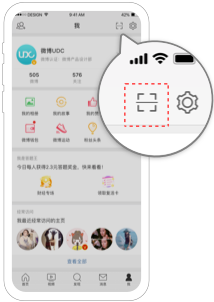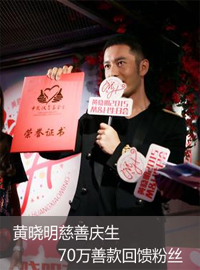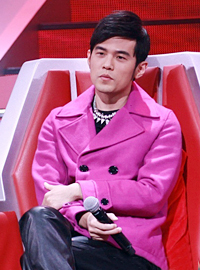
Language is ever-evolving, but as this year’s popular Chinese phrase, "Live longer, see more" implies, new innovations are not just for the young. While new phrases and slang often originate online, they spread quickly throughout the culture. Walking the streets, you’re liable to hear even dama (middle-aged women) gossiping about their household affairs using novel new expressions. Don’t worry, though, if you’re feeling a bit behind; Metropolitan has collected the 10 most popular new expressions of 2015 to make sure you’re hip to China’s latest lingo.
语言是不断发展的,不过,正如中国今年的这个流行词“活久见”所暗示的,创新不只是年轻人的专利。虽然新的短语和俚语往往起源于网上,但他们很快就融入 了中国的文化。走在街上,很容易听到即使是中国大妈(中年妇女)也在采用新潮词汇八卦她们的家务事。不过,如果你感觉有点跟不上时代,别担心,大都会已经 收集了2015年的10个最流行表达,以确保你通晓中国最新的行话。
tiān jià xiā
天 价 虾
This phrase, which means "pricey prawns," originated from a news story on October 4, in which a customer was overcharged by a restaurant in Qingdao, Shandong Province. The diner claimed that the menu listed a portion of prawns as costing 38 yuan ($5.9). But when he received the bill, he was told that 38 yuan was the price of a single prawn, and that he owed about 1,500 yuan for the dish. The news attracted wide public criticism. Many Net users subsequently started to use "prawn" as a measurement unit for price. "How many prawns is your monthly salary?" If you earn 7,600 yuan every month, then, you can answer, "200 prawns."
这个短语的意思是“昂贵的大虾”,它源于10月4日的山东青岛的一个新闻,顾客被一家餐厅多收费。食客声称菜单里一份虾是38元(约5.9美元),但是,当 他收到账单时,才知道38元是一只虾的价格,这样他的帐单就是1500元左右。这一消息引起了公众的广泛批评。许多网友随后开始使用“大虾”作为价格计量 单位。“你的月薪多少虾?”如果你每月挣7600元,那么,你可以回答,“200虾”。
huò jiǔ jiàn
活 久 见
"Live longer, see more." This saying can be used to express surprise at seeing something unexpected or an explanation for why unexpected things happen. Some Net users used this phrase to comment on the film Lady of the Dynasty (2015), which featured a scene of the two main characters, played by Fan Bingbing and Leon Lai, having sex on a galloping horse.
“活的越久,见识越广。”这个词可以用来表达在看到一些出乎意料的事情的惊讶,或者为意想不到的事情做解释。某网友用这个词来表达对电影《王朝的女人杨贵妃》(2015年)中,范冰冰和黎明两位主角上演马震的一幕的评论。
xiǎo gōng jǔ
小 公 举
An affectedly sweet way to say "little princess," this term is used to describe a man who has the characteristics of a young girl, but is, nevertheless, not a sissy. Among the most popular examples is Taiwanese singer Jay Chou, a reportedly shy guy who likes sweet foods, the color pink and strawberry milkshakes.
这是说“小公主”的一个嗲嗲的方式,它用来形容一个男人拥有年轻女孩的特征,但,尽管如此,却并非娘娘腔。其中最常见的例子是台湾歌手周杰伦,据传是一个爱吃甜食,喜欢粉红色,喜欢草莓奶昔的腼腆小伙。
duó shǒu dǎng
剁 手 党
Translated as the "hands-chopping club," this phrase refers to people with an online shopping addiction. These people spend lots of money shopping for things that they have no use for. After the initial shopping high, they regret the splurge and vow they will chop their hands off if they do it again. Of course, once they’re seized by the urge, they forget all about their previous vow.
译为“剁手俱乐部”,这个词语指那些有网上购物瘾的人们。这些人花很多钱购买对他们没用的东西。在最初的购物高峰,他们对自己的挥霍感到后悔,并发誓如果以后再买他们就砍自己的手。当然,一旦他们有了购物的冲动,他们就忘记了自己以前的誓言。
wǒ dài zhe nǐ nǐ dài zhe qián
我 带 着 你 你 带 着 钱
"I’ll carry you, and you carry the money." This line is drawn from a poem that a mother in Shanghai wrote to her daughter who is attending university. The poem, which the daughter posted in a screenshot from her WeChat, discusses the willingness of the mother to go anywhere with her child; however, most readers homed in on this specific sentence. It has become widely used among friends to humorous effect, like, "Let’s go to dinner. I’ll carry you, and you carry the money."
“我带你,你带着钱。”这个词源于上海的一位母亲写给她上大学的女儿的一首诗。她的女儿将这首诗截屏发在了微信朋友圈,讨论了母亲愿意同她的孩子去任何地方的 愿望。然而,大多数读者只记住了这个特别的句子。它已在朋友之间被广泛的使用,带着幽默的效果,比如,“我们去吃饭吧。我带着你,你带着钱。”
zhǔ yào kàn qì zhì
主 要 看 气 质
In November of this year, Taiwanese pop star Cyndi Wang posted an image from her new album on her Weibo that found her wearing a skimpy but snazzy retro outfit while holding a hamburger. As Net users puzzled over the strangeness of the photo, Wang replied, "Please focus on the charisma." Her response earned a good deal of attention, but a "punny" new translation of the Chinese phrase is winning even greater popularity: "God wants to check the air quality," which plays off the heavy smog recently seen by many Chinese cities.
11月,台湾歌手王心凌在她的微博最新相册里贴了一张照片,照片是王心凌拿着一个汉堡,穿着一件轻薄的而又俗气的复古服装。网友评论说不懂照片的意思,王心凌 回答说:“主要看气质。”她的回复引发了大量的关注。但因最近中国北方大部分城市被雾霾笼罩,对这个词“一语双关”的新解读更受大家的欢迎:“上帝(主) 想要看空气质量。”
zhóng yào de shì qíng shuō sān biàn
重 要 的 事 情 说 三 遍
Literally, this saying means, "Important things should be repeated three times." Among the widely accepted sources of this meme is a Japanese anime series called Haiyore! Nyaruko-san, in which the heroine claims that if you repeat something important three times, there will be magical effects. This may also explain the recurring scenario in The Big Bang Theory that finds main character Sheldon harassing his neighbor Penny with the thrice repeated: "(knock knock knock) Penny! (knock knock knock)Penny! (knock knock knock) Penny!"
仅从字面上看,这句话的意思是“重要的事情要重复三次。”其中被广泛接受的这句话的起源是被称为Haiyore!Nyaruko-SAN的日本动画系列。该 片的女主角声称,如果你把很重要的事重复三次,就会有神奇效果。这也可以解释大爆炸理论里反复出现的场景,主角谢尔顿总是重复如下三次来骚扰他的邻居 Penny:“(当当当)Penny,(当当当)Penny,(当当当)Penny!”
gǒu dài
狗 带
This word, which means "dog leash," sounds like "go die" in English, and became popular after it appeared in the rap lyrics of a song by Huang Zitao, a pop star from the Chinese mainland. The word can be used either to curse someone or to show one’s resolution not to easily admit defeat, such as, "I won’t go die easily."
这个词的意思是“狗皮带”,听起来像英语中的“去死吧”,并因出现在中国大陆说唱歌手黄子韬的一首说唱歌词中而流行。这个词既可以用于诅咒某人,也可以表现出一个人不轻易认输的决心,比如,“我不会轻易死掉。”
shǎ bái tián
傻 白 甜
This term, which literally translates as "stupid white sweet," is used to describe a girl who is innocent, fair-skinned and sweet in appearance. Though these kinds of girls may seem to be at a disadvantage when competing with their more calculating counterparts in the workplace, a number of male Net users have pointed out that they would prefer girlfriends who are shabaitian, because the more innocent girls are, the more lovely they are.
这个词的字面意思是“傻白甜”,用来形容一个女孩清纯,皮肤白皙,外形甜美。虽然这种类型的女生与职场中那些精于算计的女生相比处于劣势,但相当多的男性网友称,他们宁愿自己的女朋友是傻白甜,她们因为天真无邪而愈显可爱。
yán zhí
颜 值
"Face score." This phrase is used to assess the looks of other people, both men and women. A high face score, or a "face score detonation," means that someone is good-looking, while a low face score means that someone is on the uglier side.
即“面部分数”,这个词是用来评价别人的容貌,不分男女。“高颜值”,或者“面部分数爆表”,是指某人好看,而低颜值则意味着人长得比较难看。









































































































